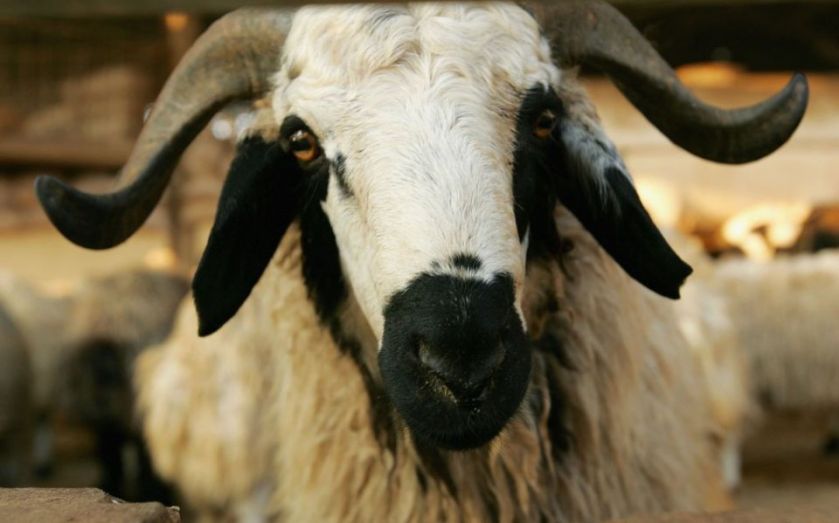Chinese New Year: How the goat could bring some prosperity to China’s struggling economy

The year of the horse didn't work out too well for China. Growth slowed to its lowest point in two decades, while an over-investment in construction has resulted in too much property relative to demand.
The country's leaders have attempted to spur growth on again, with the People's Bank of China cutting interest rates to 2.75 per cent and creating a programme to connect the Hong King and Shanghai exchanges, but they have shown little promise so far.
Tomorrow, China will usher in the year of the goat – a small and fairly unexciting animal that fails to rouse the imagination quite as much as 2012's dragon or 2013's snake, but the power of this bearded ruminant should not be underestimated, according to Chinese astrology.
Characterised by tenacity, creativity, steadiness and a cautious approach to business, the year of the goat could be just what the struggling economy needs at this time.
Here are five reasons to be cheerful about the next 12 months under the new star sign.
China's market will climb with new investment models.
As investors adjust to the new outlook in China, investors will adapt their models appropriately, according to Lo:
Goats can be stubborn but are also known for being tenacious, determined and sure-footed. We think investors could see the market climb higher after Chinese New Year as market participants update their investment models to reflect changing assumptions.
Lower oil prices and interest rates will help Chinese companies
While the wider energy sector is facing a challenging time because of the huge drop in global oil prices, China should benefit – being a major importer of the commodity, corporations there are able to buy it more cheaply.
The fact that interest rates have come down will also benefit Chinese business, according to Lo – in November last year, the People's Bank of China cut its one year deposit rate fo 2.75 per cent from three per cent in order to revive the flagging economy.
We see room for profit margin expansion at Chinese companies, helped by cheaper raw materials prices including a lower oil price. Reduced financing costs now that interest rates have come down (and may still have further to go) and better corporate cost control in China should also help.
Greater investment in infrastructure
Late last year, China approved more than $100bn (£65bn) worth of infrastructure projects, in an attempt to bolster slowing growth in the world's second largest economy.
The National Development and Reform Commission (NDRC), China's main economic planning body, approved 21 infrastructure investment projects between 16 October and 5 November.
China could officially become the world's largest economy
In December last year, the International Monetary Fund (IMF) placed China's economy, worth an estimated $17.6trn (£11.4trn), as the biggest in the world. It said that for the first time in 140 years, the US fell slightly behind with a value of $17.4trn (£11.3trn).
There were questions over the reliability of the statistics, but since China has the fastest growing economy, there's every chance it will officially take over the US during the year of the goat.
China is still growing faster than any major economy.
Gross domestic product was 7.4 per cent in 2014, which failed to meet the county's target of 7.5 per cent and represented the slowest growth since 1990, according to the National Bureau of Statistics.
But while growth slows and flaws appear in the structure of China's economy, it is still growing faster than any other major economy.